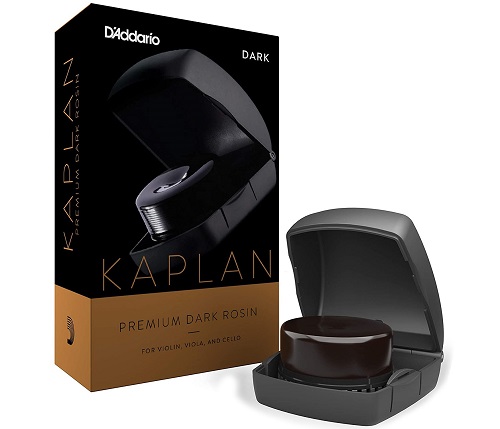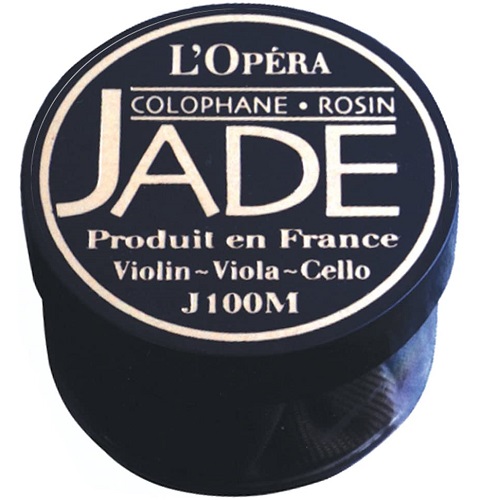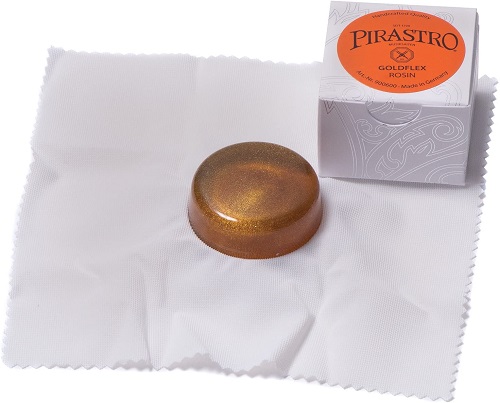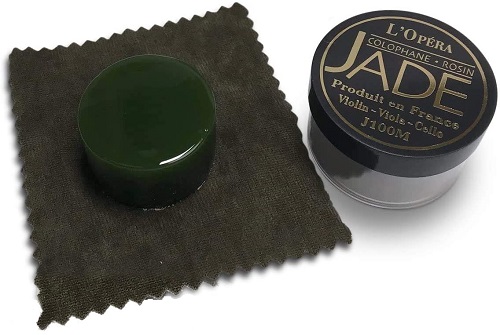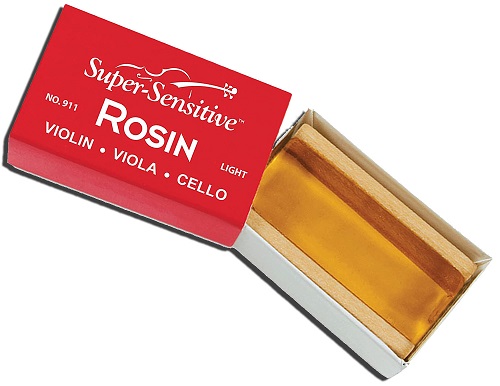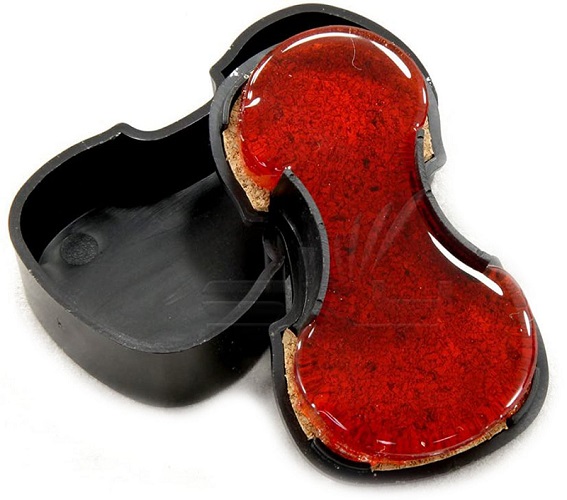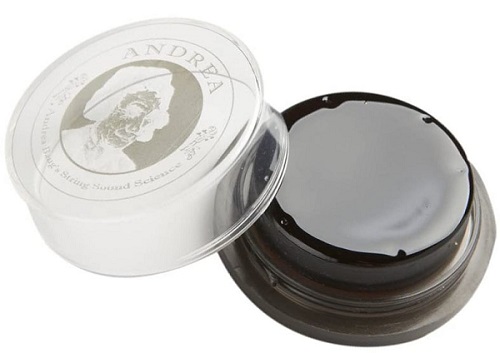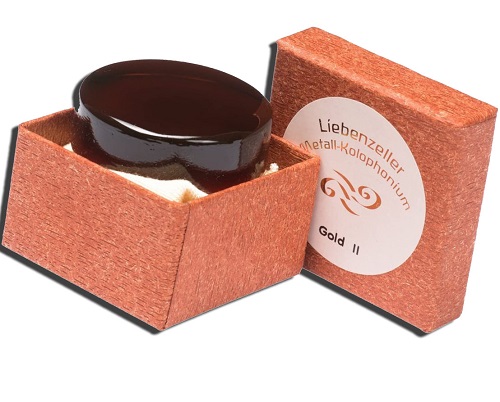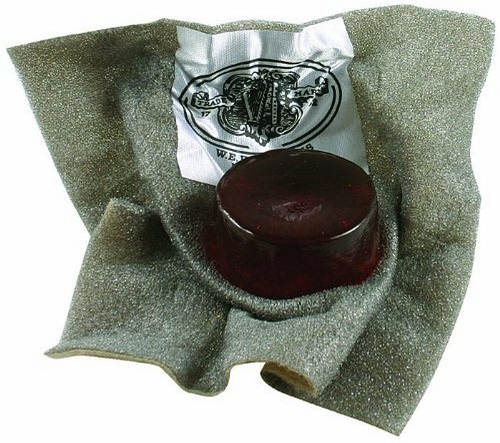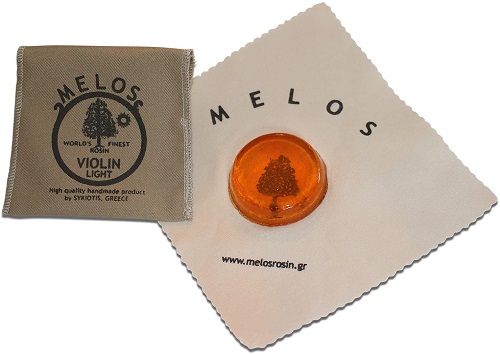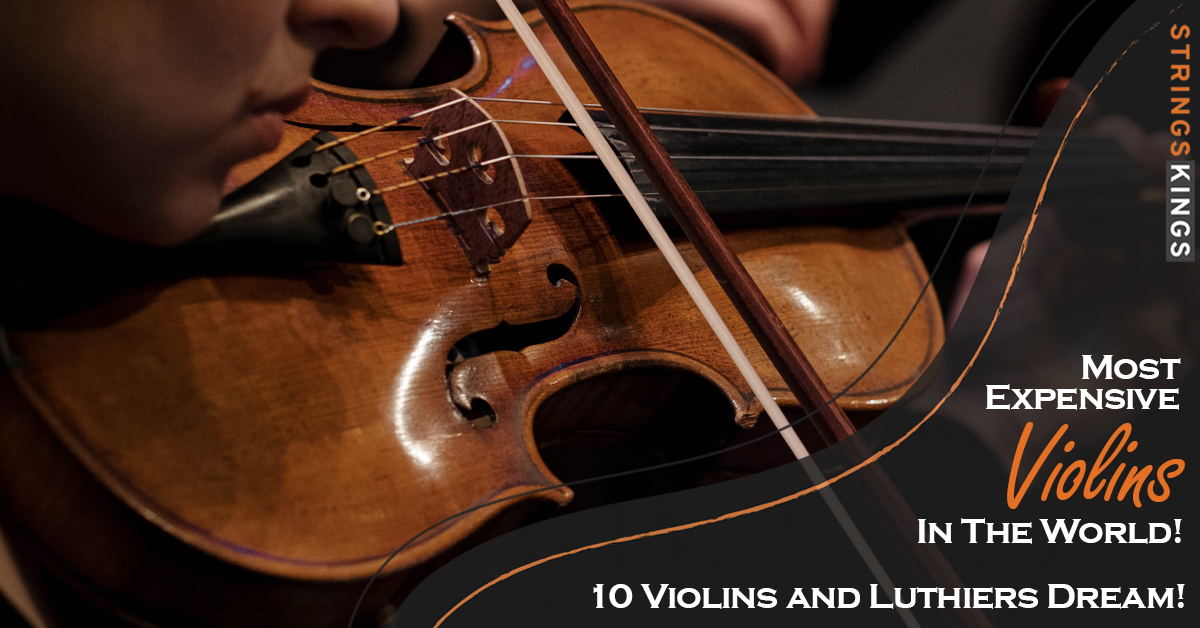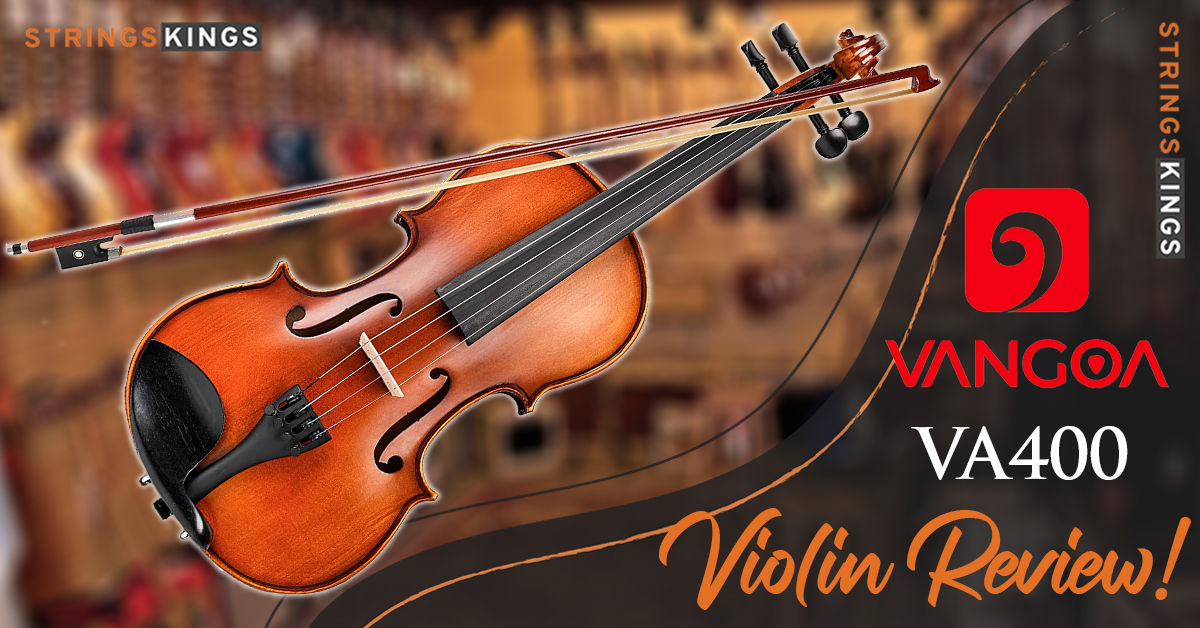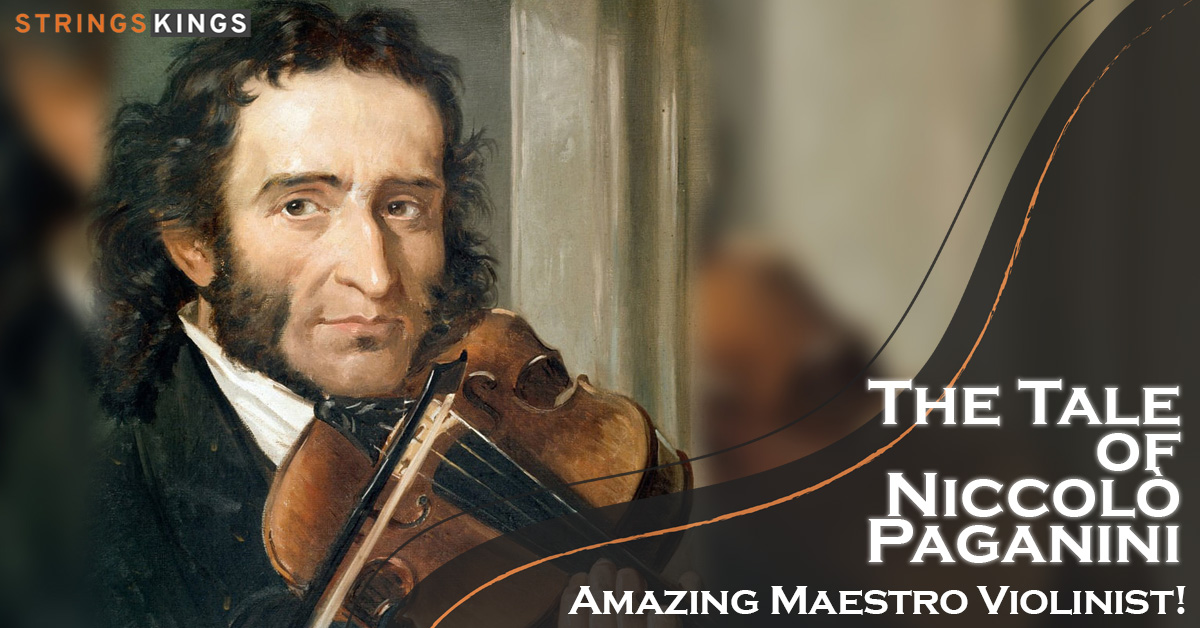Table of Contents
What Rosin Do Famous Violinists Use?
Rosin for violins: for a lot of beginners, rosin is not something that’s given a lot of thought till the bow is in desperate need of it, or if the rosin has broken and has shattered into a thousand pieces on the ground. For advanced and professional violinists, the fine rosin violin is an important consideration for the quality of sound as well as the time of year.
Most of us have heard of rosin for violins. But what on earth is it? We know it is applied to the hair of your bow approximately every other time you use it. Some apply it every time. We know that it provides the grip necessary for the bow to create a sound from the strings. Without it, the bow would ‘skate’ across the strings and produce nothing.
So, what is it, and what are the Best Violin Rosins?
Rosin is very much like a tree sap that is hardened. It is a form of resin that, like sap, comes from the tree. A very sticky material. It is often used to make vanishes and some glazes. And of course, Rosin.
Best violin rosin is manufactured by heating the liquid until it becomes solidified. It becomes almost glass-like, with shades of orange, and has a smell resembling pine trees.
It is very brittle as a substance. Don’t drop it, like glass; it will shatter. An interesting substance and one vital to the bow and how it reacts with the violin.
In this guide, we are going to talk about the Top 10 Best Violin Rosins across all budgets and playing styles, in addition to a few details to know when shopping for violin rosin.
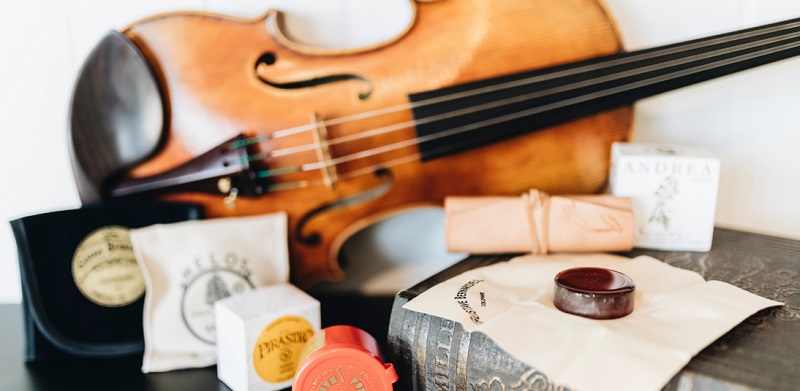
Best Rated Violin Rosin Reviews
Before we get on to our guide to buying the best violin rosins where we’ll answer all of the questions somebody might have before buying it’s time to take a look at our favorites. We have our best violin rosins reviews that can assist you to choose the perfect one for your needs.
1. D’Addario Kaplan Premium Rosin with Case
Anyone who goes anywhere near a musical instrument with strings will know the name D’Addario. A renowned string-maker from Italy originally based in the 1880s. It is violin rosin that uses the identical formula as the respected Ladislav Kaplan.
Dark violin rosin…
D’addario Kaplan premium rosin is dark rosin, which some will choose against the lighter. Dark rosin is softer to the touch and is way stickier than lighter rosins.
Likewise, this tends to be not so sticky and far harder to the touch. It does make a difference to the sound of the strings when the bow is played across them.
Dense profile…
D’addario Kaplan premium rosin feels totally different to the player because of its denser profile. It’s usually said that darker rosin is better suited to larger orchestral stringed instruments. Especially the cello or the bass. However, many violinists choose its characteristic sound and feel. Especially people who do a lot of violin solo work.
A decent quality Rosin that’s widespread among many orchestral and solo players. Set at an affordable price level, it’s decent quality violin rosin.
D’Addario Kaplan Premium Rosin with Case
2. Jade L’Opera Rosin for Violin
This can be a Rosin for violin, viola, and cello bows that are made in France. In making this violin rosin, they’re using traditional recipes which are centuries old.
It offers a superlative grip for the bow on the strings. It does this without producing an excess of rosin dust, which may often be the case.
Long-lasting grip…
The grip will last for several hours with no noticeable signs of deterioration in performance. That makes this worth consideration as among the best violin rosins.
The feel of the bow on the strings is, therefore, smooth and silky and not harsh. It helps to provide a warm and rich sound. That was also extended to lesser high-quality strings.
Enhances low-quality bows…
Even budget strings also noticed an increase in performance when this Rosin was applied to the bow. The lack of excess reduces the risk of scratching on valuable stringed instruments.
Stylish storage…
However, there’s an added feature with this violin rosin over and above the quality of its performance. It is available in a carved wooden box. It is a beautiful touch and so typically French. It’s elegant but durable and is formed in the same style as a Stradivarius. There’s additionally a velvet cloth to wrap the Rosin to protect it.
Well-made violin rosin with an added extra that makes it special. Appropriate for all ranges of performance, ensemble, and solo. It might not be the most affordable, but it surely might effectively be one of the best Rosin available on the market.
Jade L’Opera JADE Rosin for Violin, Viola, and Cello
3. Pirastro Goldflex Rosin For Violin
Pirastro has a well-deserved status as one of the best makers of orchestral strings and associated products. Rosin, in fact, is one among them. Founded in Italy in the late 1700s, and soon after it relocated to Germany. The business remains to be family-run.
Dedicated to quality…
They’ve become one of the biggest sellers of orchestral strings in the world. Their strings, as with all their products, are focused on quality. This violin rosin is a wonderful product that has to be considered top-of-the-line.
Made for violins…
It is particular rosin that’s suitable for the bows for violin, viola, and cello. Within the manufacturing process of Pirastro Goldflex Rosin, very small flecks of gold are included in the mixing of the Rosin.
This isn’t for visual effects. The gold, flecks give an excellent smoother grip of the violin bow on the strings.
Enhanced sound quality…
Moreover, the gold flecks create warm tones that also have an increased brightness. Due to this fact, it produces a better sound across all ranges of quality of string. Because of this, even low-grade strings will perform at a higher level with this Rosin.
This specific Rosin is used by violinists of all levels, including professionals. It is available in lace-like material that offers it just enough protection. Therefore, it is going to be the safest inside your violin case.
A wonderful product from an esteemed company with a lovely price level. Simply one of the Best Violin Rosins you can buy.
Pirastro Goldflex Rosin For Violin – Viola – Cello
4. Jade L’Opera JADE Rosin for Violin, Viola, and Cello
Back to Jade once again for one more decent-quality product. It is the best rosin manufactured for bows for violin, viola, and cello. It’s one of their original recipes that have turned into a firm favorite with so many musicians.
The professional’s selection…
There are several reasons for that. When applied to the violin bow, it creates a warm and rich bright tone from the strings of the instrument. It has simply the precise balance of materials to not be too sticky.
Likewise, it allows even the quietest of notes to maintain maximum sustain. The level of rosin dust can be reduced to a minimum.
Dust and scratch protection…
So despite the fact that it promotes a firm group on the strings, the variety of particles released is very low. It will protect your valued instrument from a build-up of dust or any surface or scratching that would happen.
Moreover, the profile content of the rosin makes it appropriate for both summertime and winter use.
A history of quality…
It is available in velvet cloth wrap for protection and is delivered in a box that’s crush-proof for further protection. The recipe used for this violin rosin is centuries old. And it’s still used in the manufacturing process in France.
Superior high quality at a really cost-effective price.
Jade L’Opera JADE Rosin (Original Version)
5. Super Sensitive Light Violin Rosin
It is light rosin that fills a very wanted niche in the market. When a young starter has their first violin, it’s best to try and keep prices down in case you can. Rosin isn’t the most expensive part of the price equation.
Additionally, it could actually help to buy a special Rosin for a younger player. But, it must be of decent quality. A poor-quality Rosin won’t work on the strings. Because of this, it’s going to make playing harder for beginners.
Built for beginners…
This Rosin is made for those beginning on the violin. It isn’t the best quality. But, for beginners, young or old, we must say it is an appropriate choice.
This is because it’s well-made and doesn’t stain the bowstrings. The dust it creates is very light rosin and nice and easy to wipe away.
East to use and great value…
For a brand-new player, this light rosin it’s a good buy. It isn’t expensive, and it does its job effectively. Due to this fact, this light rosin is more than enough for the up-and-coming young violinist.
Along with excellent value, it comes in a hardwood block. There’s also a sliding box, so it’s simple to use and keeps this light rosin protected from damage.
Super Sensitive Light Violin Rosin
6. Yeanling Big Black Violin Shaped Rosin for Violin Viola Cello
This is another violin rosin that’s ideally suited to a starter player. It is very much a budget product and, as such, is more inexpensive than most of its competitors. Having stated that, the quality is quite good. It’s going to suffice for a new player.
Not affected by temperature…
This Rosin is appropriate for the Violin, Viola, and Cello. It has quite a hard exterior but is simple to apply and has a low dust output. Typically Rosin can soften in hot and humid climates, which can cause problems. Happily, this Rosin has no such problems.
The result is a consistency that is not affected by the temperature. It’s appropriate for both horsehair and synthetic hair bows. It’s made using only all-natural components.
Clear and warm tone…
The bright tone it helps to produce is clear and quite pleasant. This makes it perfect for a new player who is still studying the instrument. It is available in a nicely made violin-shaped box. As we have mentioned, it’s a very cost-effective Rosin.
Yeanling Big Black Violin Shaped Rosin
7. Andrea Solo Violin Rosin 1/2 Cake
This is a very dark rosin that may be a little bit sticky, especially in the summertime. However, it does encourage a pleasant warm tone from the bow, and it’s low on dust.
Not the average dark rosin…
You need to be aware that this is known as a half-rosin cake. Meaning it’s half the size of the standard Rosin you’ll discover. You do get two in a pack at this price level. Because of this, it’s quite expensive in comparison with different Rosin brands.
This dark rosin is available in a plastic jar. We might suggest you take care of the jar because in case you drop it, it’s more likely to shatter.
A great violin with darker rosin but not an affordable choice.
Andrea Solo Violin Rosin 1/2 Cake
8. LIEBENZELLER Gold II Violin/Viola Rosin Soft
Liebenzeller has been making their violin rosin in a small German city for almost 50 years. It’s handmade rosin made using resin from the Larch tree with a few different ingredients.
Due to this fact, it has a quite unique sound, which encourages a clean tone. It brings with it plenty of sustain even on quieter notes.
Balanced and responsive…
An even response across the strings is important for the sound of the violin. This rosin is designed to ensure you get that conformity while playing. The full warm sound that’s nicely balanced makes this among the best Rosins on the market.
Clear and bright tone…
An excellent feature of this Rosin is that the high notes stay light to the ear and not shrill. It also helps to reduce any ambient noise caused by the bow on the strings.
That is because of the softness of the Rosin. Likewise, it’s not as hard because the others have a lighter feel.
Well-respected by experienced violinists…
This is among the finest Rosins around. So, it has a great reputation amongst both novice and experienced violin players. It is available in a round storage jar for protection. Not low cost but excellent quality.
LIEBENZELLER LG2 Gold II Violin/Viola, Rosin Softer
9. Hill Dark Rosin for Violin, Viola & Cello
Hills have been making Rosin for many years and produce a wide range of products. They’re most famous for their light and dark varieties of Rosins and the different features they produce from the bow. That is the Dark Rosin for Violin, Viola, and Cello.
Soft but with an incredible grip…
It is a slightly softer Rosin than Hill Light one. Due to this fact, it’s a little stickier. Moreover, it’s not as hard in its components.
The softer feel provides the bow with a bit more grip on the strings. That is appreciated by very experienced players.
Not made for amateurs…
It may be a little bit awkward to play with and might be not a great Rosin for a beginner. The sound it helps to produce could be very powerful from the bow, but it does need controlling.
It may have a rough edge to it and might produce a rather crunchy sound if used by a beginner.
Dustier than most…
It also produces its fair share of dust. Because of its dark sticker content, it lays heavier on the bowstrings.
In case you are someone affected by Rosin dust, then this won’t be your best option from Hill. The lighter Rosin, which has a little less dust, could also be better for you.
However, it is a good Rosin that creates a warm and rich sound. However, it’s not particularly low-cost.
The Original Hill Dark Rosin For Violin
10. Melos Light Violin Rosin
One of the better-known companies that produce high-quality Rosin, their products are used by players at all levels. It is a Rosin for the violin made with a light, soft texture.
Big sound…
This specific Rosin produces a very robust sound. Because of this, it lifts the violin out of group instrumentation. That is typically a great feature for ensembles and chamber music.
Like all darker Rosins, it has a warm and smooth sound yet remains to be dominant.
Chemical-free composition…
It’s produced from pure ingredients and doesn’t include any extra chemical substances. That is made from pine trees from Greece, and being lighter Rosin is harder in texture. Perfect for playing in the summertime.
Actually, a wonderful Rosin and has to be considered one of the top brands. As ordinary, with better products, it isn’t low-cost compared with some others.
Melos Light Violin Rosin
Violin Rosins Buying Guide
Rosin will make a difference in the way in which the bow helps to make the sound. If the hair on the bow lacks a sticky feel, it won’t grip the strings. There might be no real contact between the bow and the strings. In different words, the strings won’t vibrate and won’t produce very much sound.
Investing in the most effective Rosin you’ll be able to afford is at all times a good idea. An inexpensive Rosin can ruin the sound of your violin. It can also leave an excess of dust. Having mentioned that, a lower grade for an early learner isn’t a bad idea.
What are the options?
There are three principal sorts of Rosin. Dark, Amber, and Light rosin.
So what’s the difference? You’ll be able to define them, but there’s sometimes a slight little bit of an overlap, and because of the way they’re manufactured by individual companies, the definitions can become blurred.
Light Rosin
Light Rosin is way harder. It’s sometimes often known as the “Rosin for summer.” However, it is a slight misnomer. It doesn’t melt easily, in order that’s why the description has stuck.
Light Rosin isn’t as sticky as the other varieties, so it leaves less on the bow. This, in turn, makes it simpler to clean the violin after use. Light Rosin is usually finest for players new to the instrument, though, after all, that isn’t at all times the case.
Dark Rosin
This is called “Rosin for winter” and as a result, it could melt in hot and humid climates. Dark Rosin tends to be used by skilled and professional players.
It’s stickier and can give a much richer tone from the bow. You do tend to get a bit more dust than Light Rosin. This is usually a consideration for players who could be affected by dust in the air.
Amber Rosin
Amber Rosin sits in the middle because the name implies it. Skilled players down to fresh-faced amateurs use it and recognize the advantages.
What is in this stuff?
We now have already talked about the main composite. Resin from certain trees. Some companies add extra materials and claim a ‘unique recipe.’ A few of those additions are spectacular and work well.
For instance, some makers add gold flakes to provide them with a warmer sound. You might also find silver added, which provides the strings with additional brightness. A rare addition is copper, which provides extra depth.
Stick to the natural stuff…
Remember, though, that among the lesser manufacturers add some additional stuff you don’t want. This often includes some unnatural ingredients. Not good.
Stick with the guys which were producing it from age-old ‘recipes like grandma used to make. They do tend to know what they’re doing.
Boxed or Cake Rosin Violin?
It normally is available in two forms, in a cake or just boxed. The cake form is often simpler to use, but it has little in the way of protection.
Boxed is actually that. It’s in a box to offer safety from damage. Boxed Rosin tends to be better if you’re using a bow with a synthetic string.
And keep in mind that Rosin might look hard, but it could shatter if it’s not protected.
So what to choose?
The finances will play a part, but it’s more about what level the players are at.
Generally speaking, it’s smart to pay for the most effective Rosin you’ll be able to afford. However, at all times ensure it’s going to suit the level of the player. In case you are not sure and you’ve got classes, your tutor can advise you.
Before we end, here are a couple of commonly asked questions that we get from new students about violin rosin.
Q. What’s Rosin?
Rosin is a sticky substance that’s developed from tree resin, usually pine tree resin. Rosin is necessary for a violinist to have on their violin bow, as they cannot draw the sound out from their violin without it.
Q. Why Do Violinists Use Rosin?
Violinists use rosin to produce sound from their instruments and several types of rosin produce different sounds, and a violinist could use certain rosin to attain a specific sound.
A violinist’s selection of rosin can rely on their playing style and the way that they’ve set up their violin.
Many violinists, for example, choose brighter tones and violin rosins that produce quite a lot of dust.
Q. Can You Use Violin Rosin on a Cello Bow or Viola Bow?
Violin rosin can be used on a viola bow or a cello bow. Actually, there are a lot of rosins that are developed to be interchangeable for all three instruments.
Violin rosin, however, can’t be used on double bass bows as you’ll need softer rosin to have the ability to produce sound.
Q. How to Store Violin Rosin?
Violin rosin must be stored in a dark and cool place. In case your violin rosin comes in a box, preserve that box to be able to have a place to keep your violin rosin.
Additionally, in case you have space in your violin’s case, you’ll be able to keep your violin rosin in its own compartment inside the violin’s case.
Q. How Do I Find the Proper Rosin?
There is a selection of violin rosins from many reliable brands. As you perform with your violin more, you’ll develop a preference for the kind of violin rosin that you simply like.
Your choice will rely on your preferences and the way your violin sounds to you. Some violinists, for example, choose warmer and darker tones, while others choose brighter tones.
Your violin strings, in addition to your actual violin and the violin rosin that you just choose to use, will all play a role in the sound that your violin produces.

